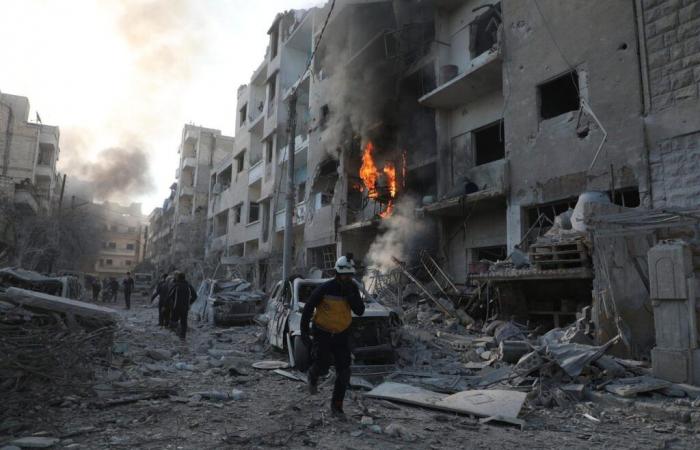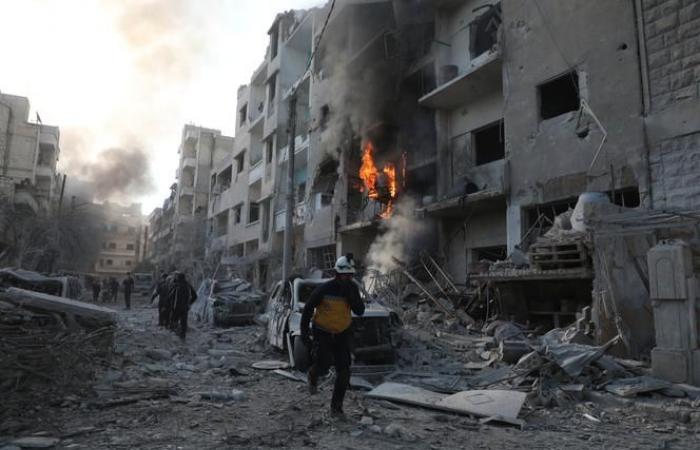Ankara is not directly engaged in the ongoing offensive in northern Syria; no Turkish soldiers have yet been reported in Aleppo (Syria), but it seems clear that the government of President Recep Tayyip Erdogan gave it its tacit support.
The first statement, made by the spokesperson for the Ministry of Foreign Affairs, Oncü Keçeli, on Friday, November 29, focused on denouncing the intensification of strikes in recent weeks by the Syrian regime and its Russian ally on the province of Idlib (in north-west Syria) rather than on current events. Bombings described as violations of the agreements concluded between Turkey (support of the Syrian rebels), Russia and Iran (allies of Bashar Al-Assad) as part of the so-called “Astana” process, launched at the end of 2016 and where Ankara had obtained a freeze on Syrian and Russian military operations in the Idlib regions. The spokesperson added that Turkey's warning that these attacks must stop had not been heeded.
Even if they are not in the majority, certain rebel groups close to Ankara are participating in the Aleppo offensive alongside the radical Islamist group Hayat Tahrir Al-Sham (HTC), the former Al-Nusra Front, which has broken away of ban with Al-Qaeda. Among them, the Syrian National Army (ANS), a grouping of around ten factions, without real ideological unity except for being very anti-Kurdish, which Turkey has managed to bring together since 2017. According to the Observatory Syrian human rights organization, based in the United Kingdom, HTC and ANS together allegedly enabled the capture of 21 villages west of Aleppo in recent days. It is also the ANS which, according to the official Turkish press agency Anadolu, pushed the advantage further to the north-east of Aleppo on Sunday, to block the corridor from Tall Rifaat to Manbij, under the control of Kurdish forces.
Read also | Article reserved for our subscribers Syria: Bashar Al-Assad trapped by his intransigence and the collapse of his regime
Read later
So many events that will put Ankara back at the forefront of the regional scene. The dazzling rebel offensive on Aleppo highlights the isolation and weaknesses of the Damascus regime with which Mr. Erdogan and his government have sought for two years, in vain, to negotiate diplomatic normalization. President Bashar Al-Assad has demanded at each stage of the discussions the withdrawal of Turkish troops in the north of the country and an end to collaboration with the Syrian opposition. Two terms which have always been non-negotiable on the Turkish side. For Damascus, it was a matter of raising the stakes and placing Turkey in a position of claimant. A position that could well evolve in the coming days.
You have 39.38% of this article left to read. The rest is reserved for subscribers.
France
World







